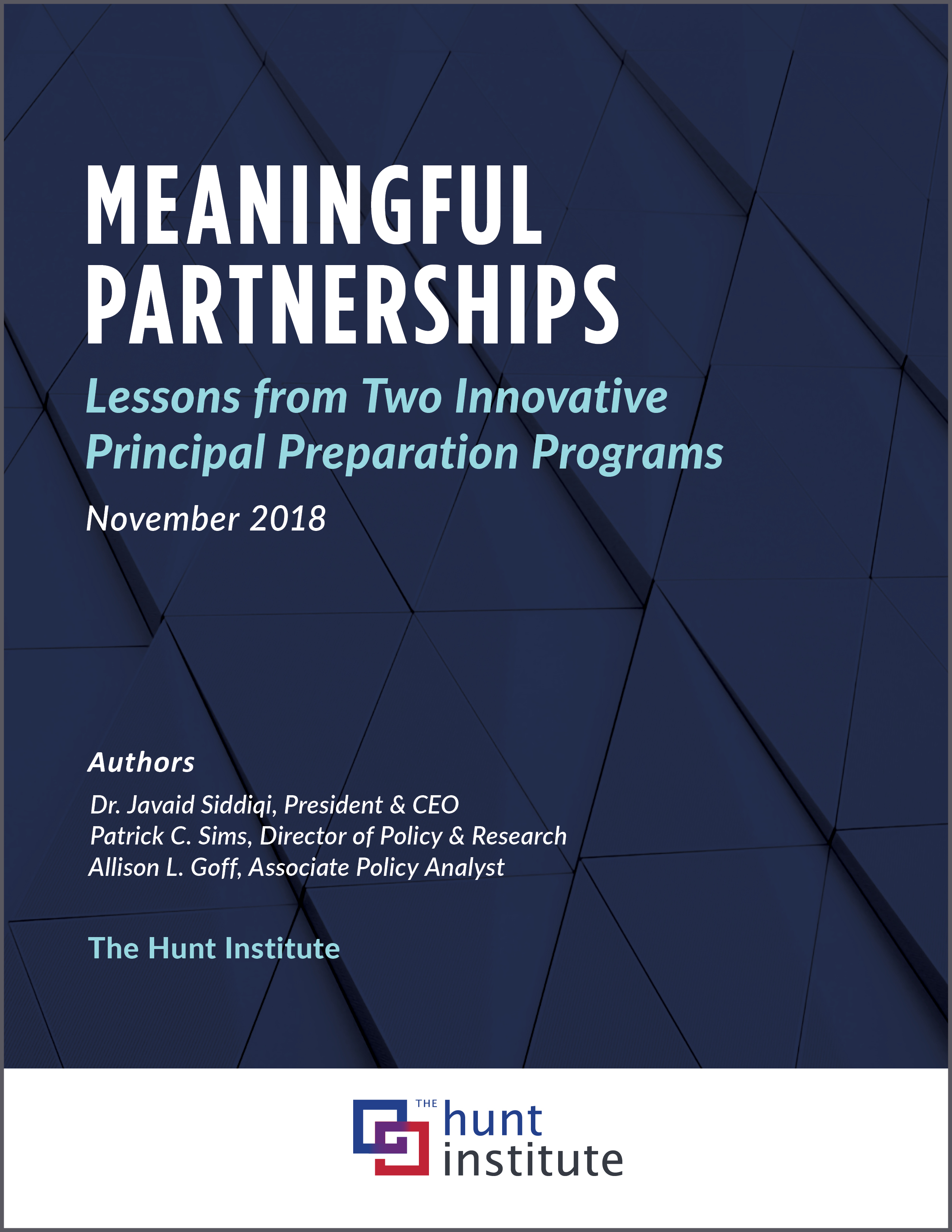Meaningful Partnerships
Lessons from Two Innovative Principal Preparation Programs
Highly effective principals are critical to driving student achievement. School leaders are estimated to account for one-fourth of school-based effects on student achievement, making them second only to teachers. With the onset of more robust teacher evaluation systems and the increasing importance of personalization and differentiation, the role of the school leader has shifted dramatically.
As the role of the principal changes, so too must principal preparation programs and the policies that guide them. In order to ensure that our schools have a strong supply of dynamic leaders who are adequately prepared for the demands of 21st-century schools, there is a growing need for innovation and improvement in principal recruitment, preparation, and professional development. The functions that dominate the day of a modern principal – student affairs, instructional leadership, personnel issues, interpersonal relations, etc. – cannot be mastered through theoretical coursework alone. Modern school leadership preparation programs must offer aspiring principals an opportunity to practice these skills with robust supports.
This study highlights two innovative programs – the Northeast Leadership Academy (NELA) in North Carolina and Kansas City Pathway to Leadership in Urban Schools (KC PLUS) in Missouri. In creating programs to meet the unique needs of districts located in rural and urban settings, respectively, both NELA and KC PLUS have built rigorous, practice-based principal preparation programs utilizing equity-focused school leader development. We take a closer look at each program, and consider the policy conditions that both supported, and hindered, the programs’ success.
We extend our gratitude to the Wallace Foundation for their support of this study.

Download the full policy brief here.


